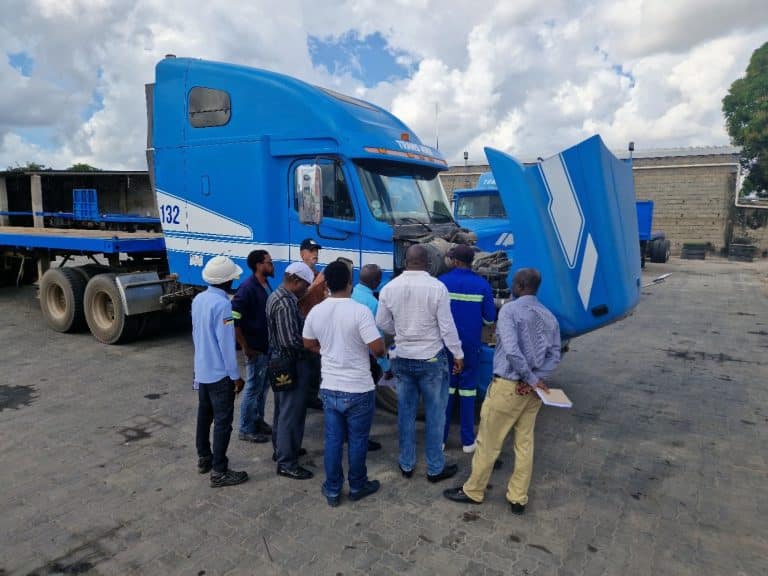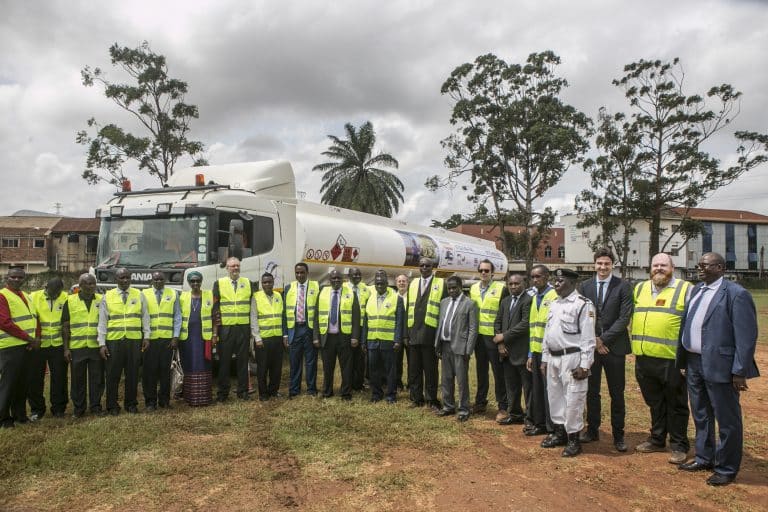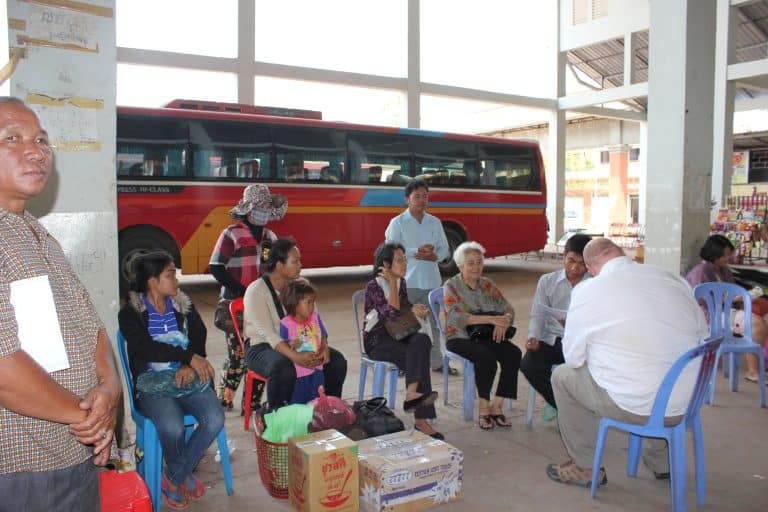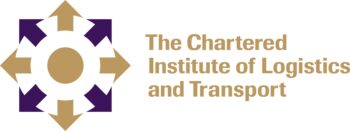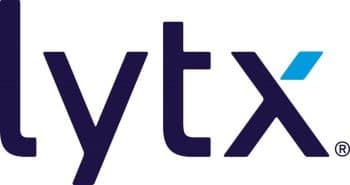Our Programmes

PROFESSIONAL DRIVER TRAINING – UGANDA PROJECT
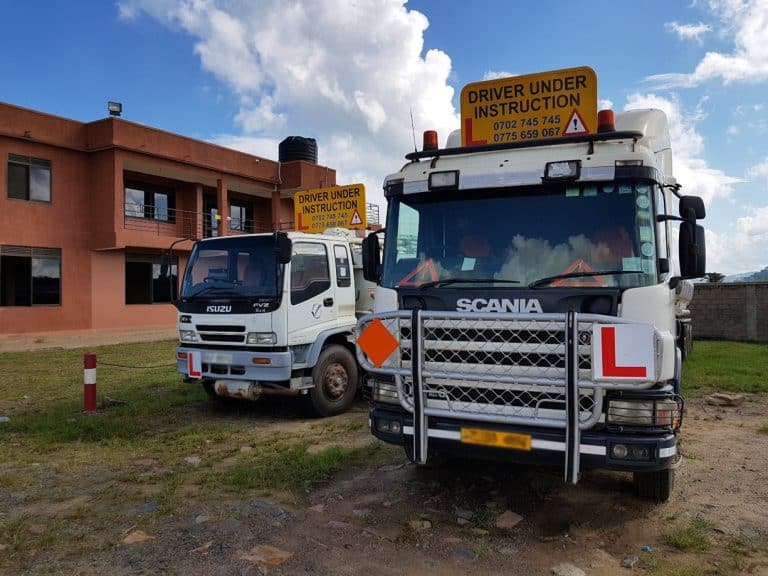
Project background
The Professional Driver Training – Uganda (PDTU) project was conducted over two phases. The first phase ran from November 2016 to November 2020, and the second from April 2021 to April 2023. By building the capacity of driver training schools, the project aimed to provide Ugandans with the necessary skills to secure better employment as truck drivers in Uganda’s growing transport and logistics sector.
Transaid partnered with Safe Way Right Way (SWRW), a Ugandan road safety NGO, to deliver this project. It was part of the Employment and Skills for Development in Africa (E4D) programme of GIZ (Deutsche Gesellschaft für Internationale Zusammenarbeit GmbH), funded by the Federal Ministry for Economic Cooperation and Development (BMZ), the Norwegian Agency for Development Cooperation (NORAD), the European Union (EU), and UK Aid.
The PDTU project aimed to enhance the capacity of Heavy Goods Vehicle (HGV) and Passenger Service Vehicle (PSV) driver training in Uganda in collaboration with industry partners. This initiative sought to meet the demands of the oil and gas sectors and related industries, thereby increasing the employment of Ugandan drivers and improving road safety in Uganda.
Road crashes are a major public health issue in Uganda, with over 12,000 estimated fatalities in 2016. With the discovery of oil and gas reserves in the Albertine Region, heavy goods traffic is expected to increase significantly, leading to a higher demand for appropriately skilled drivers. Many international transporters face challenges in recruiting Ugandan drivers due to a lack of formal training.
Results
The project focused on establishing a dedicated HGV/PSV driver training centre and enhancing the skills of driver trainers at driving schools across Uganda. Twenty existing and new Ugandan driving instructors received training from international experts on rigid trucks, articulated trucks, and buses. Phase two emphasized training female drivers and involved a gender consultant to develop a short training course on gender equality.
These trainers subsequently trained over 1,500 drivers during the project’s two phases. Phase one saw 642 drivers trained, 2% of whom were female, while phase two trained an additional 890 drivers, 9% of whom were female.

